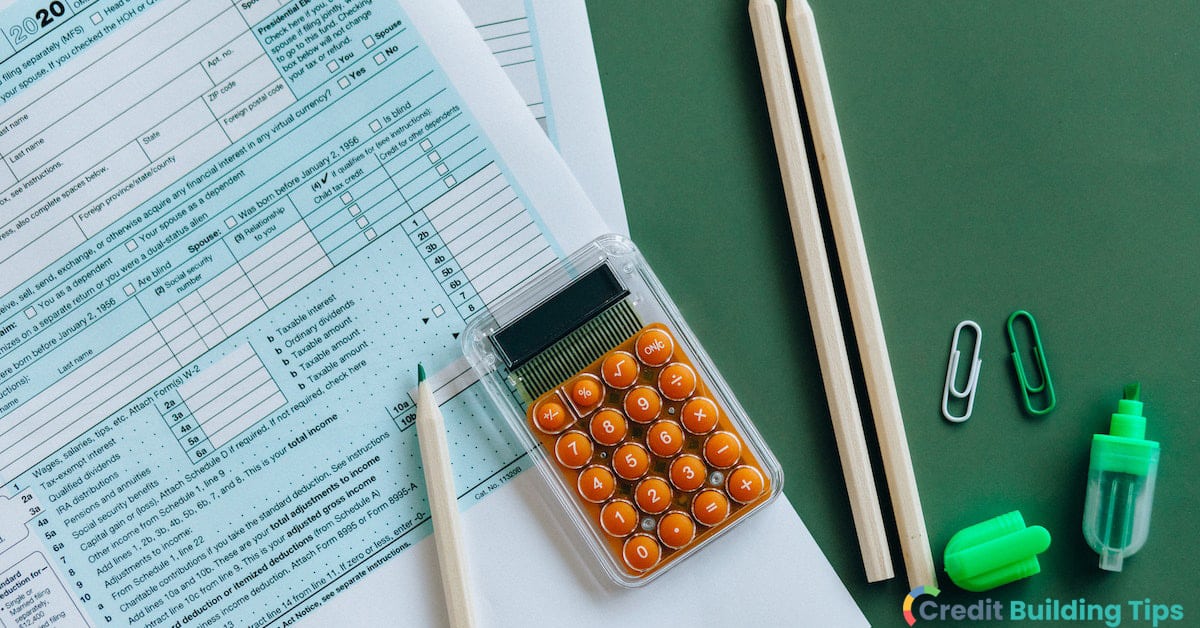Credit card issuers (and other lenders, too,) are legally allowed to ask for contact information from the credit bureaus for individuals that meet certain credit criteria.
If you're receiving loads of credit card offers in the mail, the good news is that it probably means you have good or excellent credit and that credit card companies see you as a low-risk borrower. On the other hand, if you aren't shopping for a new card, it can leave you with a bunch of unsolicited mail that contains personal information.
 Since credit card offers often include personal information as well as details necessary for opening a new credit card, you always want to shred them rather than throw them in the recycling bin.
Since credit card offers often include personal information as well as details necessary for opening a new credit card, you always want to shred them rather than throw them in the recycling bin.If you are frustrated by the fact that you should shred credit card offers rather than just tossing them, you'll be glad to know that you can opt out of receiving pre-screened firm offers from credit card companies. In this article, we'll go over everything you need to know about discarding these offers and even opting out of ever receiving them in the first place.
Yes, you absolutely should shred credit card offers. Even though you might expect that offers you didn't ask for wouldn't contain any identifying information, this simply isn't the case.

Not only will your name and address be on these offers, but there can also be barcodes that contain additional identifying information. Beyond that, if someone other than you gets a hold of your credit card offer, they could potentially use the information to open a credit card in your name.
If the envelope has your address printed on it, you'll want to shred it as well.
Credit card offers often contain personal information. They will almost always have your name and address on them, but they can also include information like:
Even if there aren't financial account numbers or your Social Security number listed in a credit card offer, you still wouldn't want a bad actor to get their hands on the personal data contained in these letters. Identity thieves and scammers can, unfortunately, do a lot with a small amount of information, so you want to avoid throwing your personal info simply being thrown in the trash.
If you feel like you're getting tons of credit card offers every week, you're not alone. On the one hand, this can be pretty annoying. In good news, though, it likely means that you have a good to excellent credit score.
They request information about potential borrowers that fit certain criteria from the credit bureaus. They are legally allowed to do this via the FCRA, but you also have the right to opt out of having your information included on these lists.
There are two ways that credit card companies can get your personal information:
The credit card offers you receive in the mail or through email are usually "prescreens."
Credit card companies will send prescreened offers to people whose credit histories meet their specific criteria. They receive this information from credit reporting companies.
This means that the companies have already deemed you worthy of receiving a specific offer due to your credit history. However, you'll still have to actually apply for the card if you decide it's something you want to pursue.
When you receive multiple credit card offers in the mail, you might be worried that these companies are constantly running credit checks on you in a way that will impact your credit score.
The reason for this is that the prescreening process only involves a soft pull of your credit rather than a hard pull.
If you look at your credit report and you see soft inquiries from credit card prescreening, don't worry. Only you can see these soft inquiries-- potential lenders or other parties that pull your credit report won't be able to see them. Soft pulls are simply listed on the credit report you can view so that you know the names of companies that are obtaining your information.
Did you pull your credit report and it could use some cleaning up? Check out our guides to removing 30 day late payments, evictions, hard inquiries, and collections from your credit report.
If there's mail you're planning on throwing away, it's honestly safest to shred all of it. Of course, tax-related information or bank statements that you are tossing out should definitely be shredded. Still, even junk mail can give identity thieves more information than you want them to know about you.
Even the envelope a letter came in should be shredded if it has an address label on it. It's really best to actually shred your mail-- ripping it in half a few times isn't as effective as you might hope. If an identity thief wants to get their hands on your information, an envelope torn in half won't be enough to stop them.
Here's another tip to help reduce the risk of identity theft:
With information like your name, prescription number, and doctor's name on them, it's possible that a bad actor could use the info to steal your identity, or they could refill the prescription for themselves.
The FTC recommends that you hold onto medical bills, pay stubs, and bank statements for a year before you shred or destroy them.

You'll always want to hold onto your tax records, too, just in case.
Further down in the article, we go into detail about how you can opt out of pre-screened credit card offers. However, you can also reduce the amount of junk mail you receive by registering at the Direct Marketing Association's (DMA) consumer website. This allows you to choose what promotional mail you want to get. This registration lasts for ten years, and there is a $4 processing fee.
You can also send your name and address along with your signature and $5 processing fee (in the form of a money order or check payable to the Association of National Advertisers or ANA) to the following address:
DMAchoice
Consumer Preferences
P.O. Box 900
Cos Cob, CT 06807
Though you might still receive some promotional mail, registering with the DMA should reduce the amount of unsolicited mail you receive.
You might think that most identity theft and fraud occur online these days, but there are still people that will search through trash bins of unsuspecting homeowners and renters.
Identity thieves are usually looking for any of the following information:
Even if one document doesn't have all of this information (in fact, it's unlikely that one document would have all of this information,) a thief could piece together a terrifying amount of your personal info by rooting through your trash from different pieces of mail and documents.
Identity thieves can do all kinds of bad things with your info, including:
This isn't even an exhaustive list of how identity thieves and fraudsters can use your personal information. As you can see, if any of these things occurred, it would be a massive problem for you, so it's simply best to just shred any mail you aren't holding on to.
If you've been throwing credit card offers (and other mail with personal identifying information) in the trash or recycling bin for years, there are a few steps you can take to help protect yourself.
In general, it's a good idea to regularly check your credit report to make sure that there isn't any inaccurate or suspicious information on there. Additionally, keep a close eye on your bank accounts and credit card accounts and report any suspicious activity right away.
Signs of identity theft include:
If you find information that points to potential identity theft, you can:
If you left your trash by the curb, it isn't technically illegal for someone to go through it. If they're trespassing on your property to go through your trash, though, it's another story.
Choosing digital bank statements and bills (i.e., going "paperless") is a good way to reduce the occurrence of someone finding your information on physical pieces of mail. You might also consider investing in a locked mailbox, installing outdoor security cameras, and keeping your trash bins on your property as close to the time they'll be picked up as possible.
For more information about the ins and outs of owning a credit card, check out our guides to credit card nicknames, prepaid credit cards, and getting a new credit card before buying a house.
Getting tons of credit card offers when you simply don't need them can get pretty annoying, particularly when you take the step of shredding each of them to protect your private information.
To opt out of prescreened credit card offers, you can submit a request online at OptOutPrescreen.com or call 888-5-OPTOUT (888-567-8688).
Luckily, you have the right to opt out of prescreened offers thanks to the Fair Credit Reporting Act. This is true for both offers you receive through regular mail as well as email.
There are two different ways you can do this:
You will only need to submit your request one time in order to have your name and address removed from the prescreening lists of Experian, Equifax, and TransUnion.
It's possible that you will still receive offers for a while because there might already be pending offers in a lender or creditor's delivery stream.
If you start shopping around for credit cards and decide you want to receive offers again, you can call the same number to opt back in. You'll ideally want to do this a few months before you plan to apply.
When you call or use the online platform to opt out of credit card offers, you are only stating that you want to opt out for a period of five years. If you know that you don't want to receive these offers ever again, though, you'll have to send a letter through the U.S. mail.
To opt out entirely from credit card offers, you'll need to complete the Notice of Election to Opt Out form and send it to the following address:
Opt-Out Department
P.O. Box 530200
Atlanta, GA 30353
You can find this form by going to the OptOutPrescreen.com site and selecting "Permanent Opt-Out by Mail." The other options are "Opt-In" (if you want your name to be eligible for inclusion on "lists used for Firm Offers of credit or insurance") or "Electronic Opt-Out for 5 years."
When you receive lots of credit card offers in the mail, it generally means that you have good or excellent credit. While this is good news, it can be pretty annoying to get so many unsolicited letters, particularly when they contain personal information that identity thieves and fraudsters could use.
If you know that you aren't going to be looking to take advantage of any prescreened credit card offers in the near future, you can opt out of receiving them for a five-year period or permanently.
While firm offers from credit card companies can get on your nerves when you don't want a new card, they can actually be pretty useful when you're shopping around for one.
If you're hoping to get a new credit card soon, it's never a bad idea to take a look at your credit report and even do some work to boost your credit score. For more resources about improving your credit, make sure you check out our Credit Building Tips blog.